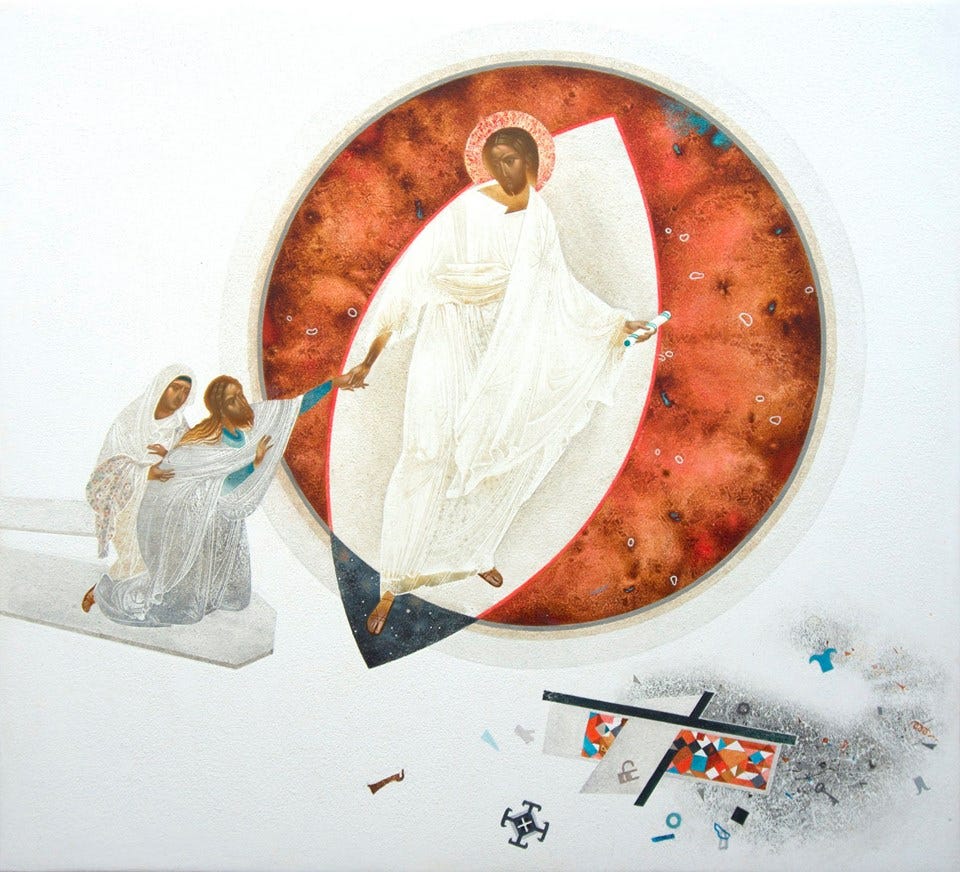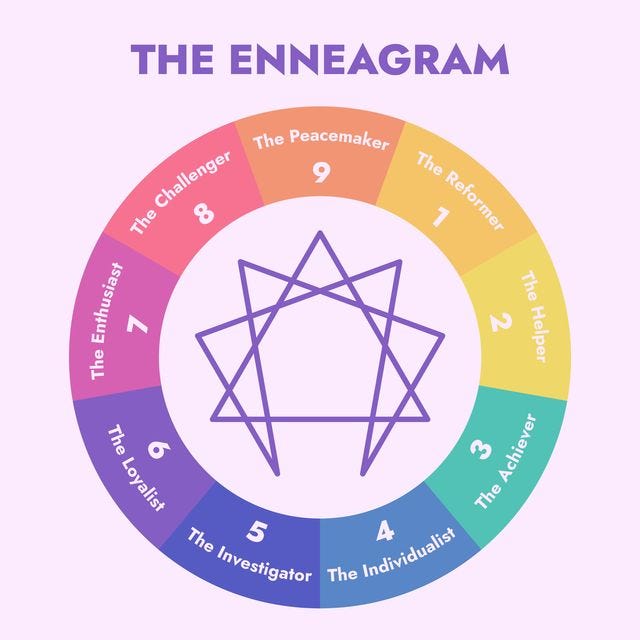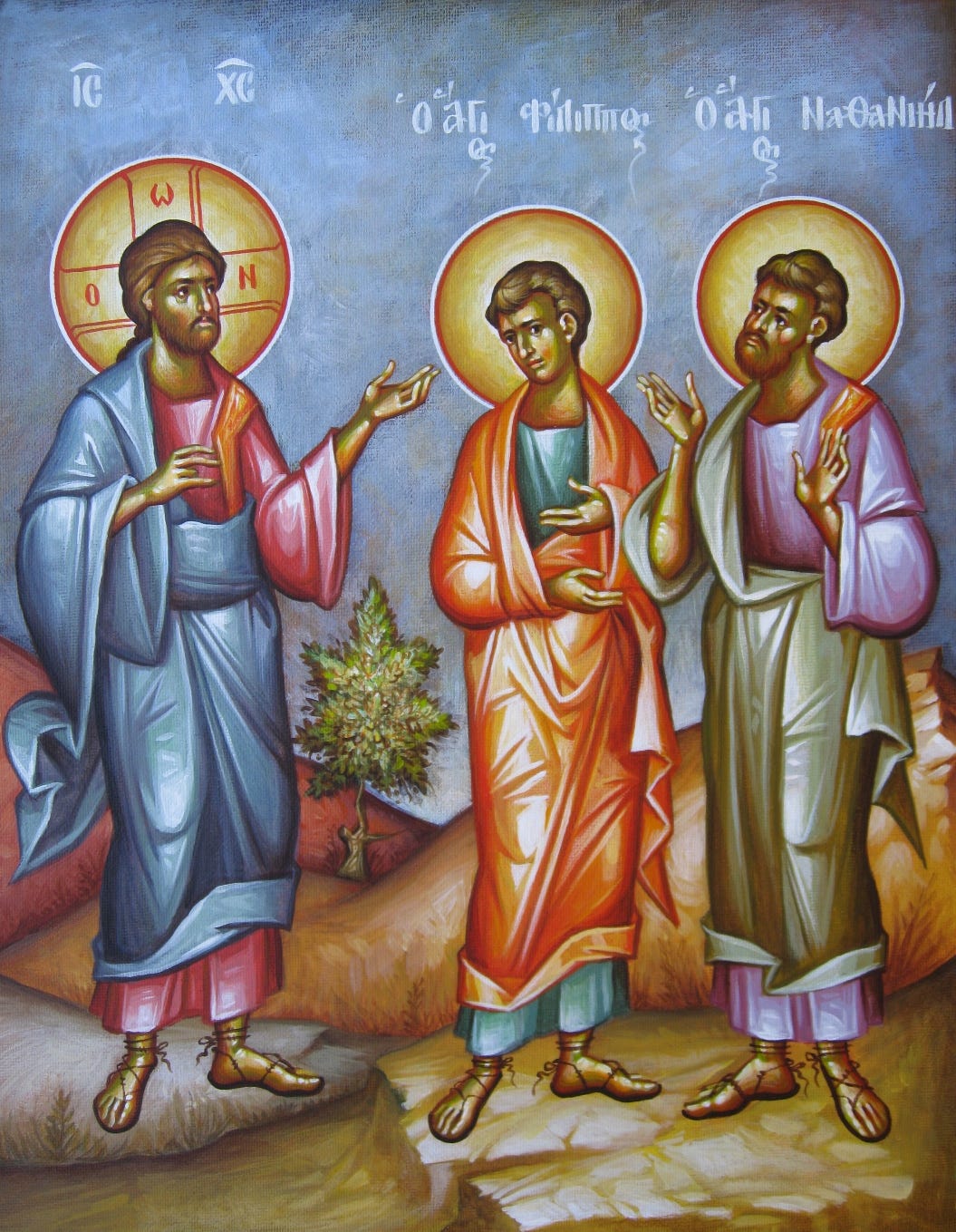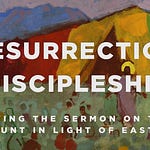New personality tests become popular every few years because we want to know what makes us tick, and we want to know what makes us who we are. When I first began my ministry, it was StrengthsFinder by Gallop. Multiple-choice answers are standard for these tests, and after 15 minutes or so, you know more about yourself than when you started.
Includer.
Relator.
Belief.
Self-Assurance.
Arranger.
Before StrengthsFinder, there was Myers Briggs.
Today, we have the Enneagram. As a four with a three wing, I am (believe it or not) sensitive and introspective while also being success-oriented and pragmatic. Bob Dylan, Paul Simon, and Leonard Cohen were all Enneagram fours, along with Edger Allan Poe, Marlon Brando, and tattoo artist Kat Von D.[i]
Personality tests help us understand ourselves better and, at the same time, help others know how to interact with us in the best way possible. These tests reveal to us things that are present about ourselves that, for better or worse, are who we are.
These tests reveal the preexisting conditions each of us carries. While some preexisting conditions are considered bad or a liability to an insurance company that is more about its bottom line than the people it cares for, the things that make us who we are, those things are a blessing. The things that make us who we are are a blessing from God. Who we are is who God made us, made you, to be.
So, while some preexisting conditions lead to a “no,” the preexisting condition of who God made you to be is the “yes” each of us receives from our Creator. God’s “Yes” is your imago deiness – that you were made in the image of God.
Today is the Second Sunday after the Epiphany. The second Sunday after, when the Church recognizes that the star that led the shepherds to the manger in Bethlehem was revealed to the Magi, you might remember them as the Wise Men who traversed afar. The season of Epiphany is the time after Christmas when the glory and wonder of the incarnation is revealed. This is a time when we remember that not only was Jesus born of Mary and laid in manger, but he is also the Son of God, the second member of the Trinity, and the Messiah that Israel had longed for. The Savior needed then and the Savior we need today.
Our scripture reading is a continuation of the calling of the disciples. Before Jesus’s encounter with Philip and Nathaniel, Jesus called Andrew and Simon. Andrew and another unnamed man were disciples of John the Baptist, and when they heard John call Jesus “the Lamb of God,”[ii] the two men “followed Jesus.”[iii] Jesus asked Andrew and the unnamed man what they were looking for and invited them to “Come and see.”[iv] Andrew told his brother Simon what had occurred, telling Simon he had “found the Messiah.”[v] Simon came to Jesus. Jesus gave him a new name, Peter. And the brothers followed Jesus.
That brings us to Galilee, Philip, and Nathaniel. Jesus saw Philip and told him to follow. Philip followed and told Nathaniel, “We have found him about whom Moses in the law and also the prophets wrote, Jesus son of Joseph from Nazareth.”[vi] With a bit of skepticism, Nathaniel asked, “Can anything good come out of Nazareth?”[vii]
Jesus tells Nathaniel he saw him under a fig tree long before calling Philip. Jesus saw Nathaniel before Philip told him what was happening. Jesus knew who Nathaniel was before Nathaniel knew what was happening. Before Nathaniel was invited to follow Jesus, Jesus, because of who he is, knew who Nathaniel was. The same is true of us today. Before Jesus invited you to “Come and see,”[viii] Jesus knew more about you than any personality test could reveal.
Nathaniel, like Philip, responds by declaring to Jesus what Jesus already knows to be true of himself, “Rabbi, you are the Son of God! You are the King of Israel!”[ix] “You, Jesus,” says Nathaniel, “are the One we have been waiting for!”
Jesus has not done anything yet. John calls the things Jesus will do “signs” that will point to his messiahness signs. Philip and Nathaniel, like Andrew and Peter, respond to Jesus’s invitation to “Come and see”[x] because of Jesus’s preexisting messiahship.
The Revised Common Lectionary assigns another calling story for this Second Sunday After the Epiphany: the calling of the prophet Samuel.[xi] To say that God calls a person and that moment to not be dramatic undersells what God is doing. God called Samuel to be a prophet while he was asleep. Samuel thought his mentor Eli was calling him, but the voice continued after Eli told Samuel to go back to bed. You see, God’s call is persistent. Eventually, Eli realizes what is happening, realizing that his student is being called by the Lord, and tells Samuel to prepare to respond.
We find out that “all Israel from Dan to Beer-sheba knew that Samuel was a trustworthy prophet of the LORD.”[xii] Samuel was a trusted prophet of the Lord because the Lord would not allow Samuel’s “words to fall to the ground.”[xiii] Samuel was trusted because of who the Lord is, and not because of Samuel’s own credentials.
The preexisting lordship of our Lord Jesus is what was called the prophets and the disciples. Jesus’s status as the Son of God and King of Israel predates the calling of any prophet predates the calling of any disciple. You see, John (the gospel writer) opens this gospel writing, “In the beginning was the Word, and the Word was with God, and the Word was God…All things came into being through him, and without him, not one thing came into being. What has come into being in him was life, and the life was the light of all people.”[xiv]
Samuel’s response, along with Andrew and Peter's and Philip and Nathaniel's, is not the result of deliberation or choice. In all three scenes, there is no drawn-out time of discernment or trying to ensure that what is happening can be fully explained by reason. The proof they need will come over the coming three years. The evidence they need occurs in the next chapter when, at a wedding, Jesus turns water into wine.[xv] The proof they need happens in a few weeks when Jesus casts a demon out of a man who had been chained in a cemetery on the outskirts of his town.[xvi] The proof they need will occur when Jesus is transfigured before their eyes, and the fullness of the glory of God is revealed to them. The proof they need will come after Jesus walks out of the tomb, leaving his burial clothes behind, and invites Thomas to touch the wounds on his side.

The calling of the disciples, the calling of anyone by God, to “Come and see,”[xvii] is about more than saying “yes” so that the Lord can send us out. Philip, Nathaniel, Andrew, and Peter were not called and immediately sent. Their sending will happen three years after their calling. After three years of seeing what Jesus was doing, they would be sent to make more disciples, to baptize them, and to teach them to follow what Jesus had taught the first 12.[xviii]
Before Jesus called his followers “disciples,” they were called “beloved” because of who created them. We are only who God says we are: no more and no less. So, no matter what number we might be in the Enneagram, no matter what four-letter Myers Briggs designation we receive, we are who God says we are: beloved. You are beloved before you are anything else. You are beloved before you are sent out to do anything in the name of the Lord who saw you sitting under a fig tree, on a barstool when you were at your wit's end, or in the car because you could not face the people inside the house with the news you had to deliver.
For Samuel, the first 12 disciples, and us, the Good News is that Jesus’s preexisting messiahship (where all of the best qualities are of God and the result of who God is) is not dependent on us saying “yes” to God. Instead, it is a sign of God saying “yes” to us, “yes” to creation, and “yes” to seeing to it that the kingdom of God is fully realized.
[i] https://www.enneagraminstitute.com/type-4
[ii] John 1:36
[iii] John 1:37
[iv] John 1:39
[v] John 1:41
[vi] John 1:45
[vii] John 1:46
[viii] John 1:39
[ix] John 1:49
[x] John 1:39
[xi] 1 Samuel 3:1-20
[xii] 1 Samuel 3:20
[xiii] 1 Samuel 3:19
[xiv] John 1:1, 3-4
[xv] John 2:1-12
[xvi] Mark 1:21-28
[xvii] John 1:39
[xviii] Matthew 28:16-20

















Share this post